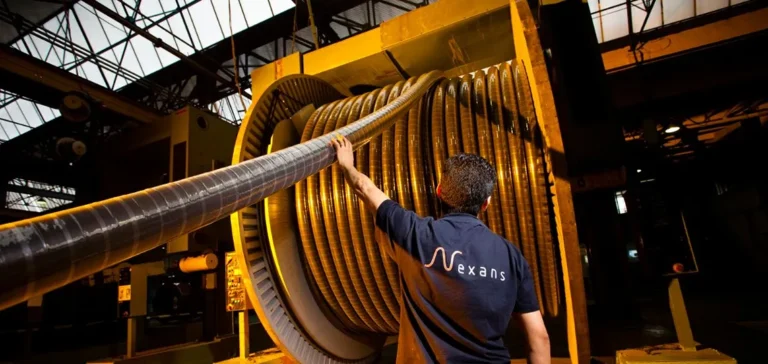French industrial cable manufacturer Nexans recorded a significant increase in its financial results for the first half, with net profit reaching EUR372mn ($403mn). This 113% year-on-year rise is mainly explained by the strong performance of its electrification-related activities. The group has also revised its outlook upwards for the current year, in light of the performances observed during the period.
Financial performance driven by electrification
Nexans’ standard revenue stood at EUR3.76bn ($4.08bn), a 6% increase compared to the same period last year, according to calculation methods that neutralise the impact of metal price fluctuations. On the basis of current metal prices, half-year revenue reached EUR4.69bn ($5.08bn), up 11%. Earnings before interest, taxes, depreciation and amortisation (a profitability indicator commonly used in the sector) reached a record level of EUR441mn ($478mn), supporting the group’s ongoing profitability trajectory.
The electrification segment played a driving role, with organic sales growth of 7.8% during the period. Nexans is thus continuing its strategic refocus on activities related to the transmission and distribution of electricity, gradually withdrawing from other segments, including digital or industrial cables, to concentrate resources on strategic markets.
Upward revision of 2025 targets
On the back of these results, financial targets for 2025 have been raised. Nexans now targets adjusted earnings before interest, taxes, depreciation and amortisation (Ebitda) between EUR810mn and EUR860mn ($877mn-$932mn), compared to the previous range of EUR770mn to EUR850mn ($834mn-$921mn), excluding the sale of the Lynxeo division and any future changes in scope. Normalised free cash flow is expected to range between EUR275mn and EUR375mn ($298mn-$406mn), compared to an initial estimate of EUR225mn to EUR325mn ($244mn-$353mn).
The sale of the Lynxeo division for EUR525mn ($570mn) to private equity fund Latour Capital, announced earlier in the year, has been completed. This operation forms part of the strategy to simplify the group’s business portfolio.
European market outlook and international exposure
Nexans Chief Executive Officer Christopher Guérin highlighted the resilience of European electrification demand, despite the recent signing of a trade agreement between the European Union and the United States for the import of USD750mn ($750mn) of primarily fossil energy over three years. He also indicated that the group’s activities, focused on local markets, remain little affected by international customs duty fluctuations.






















